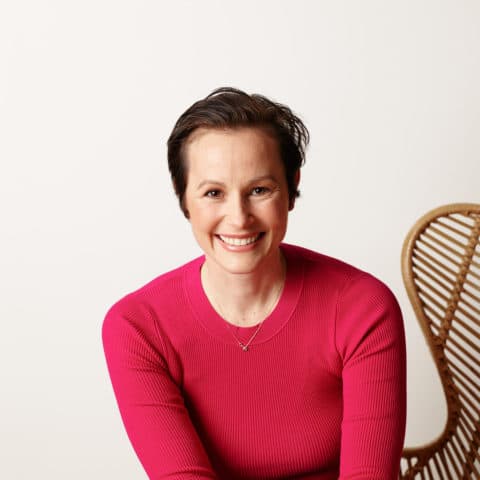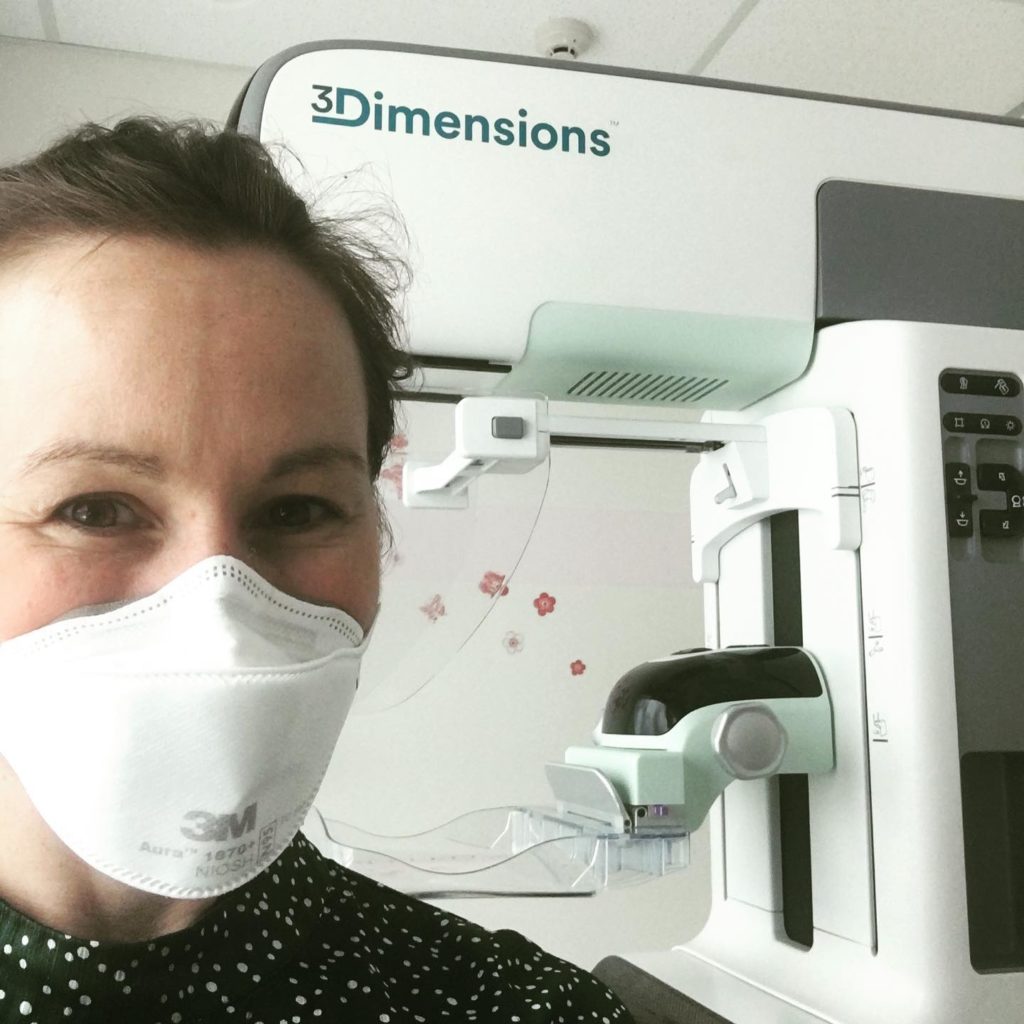Rebecca’s Experience During the COVID-19 Pandemic
Although life may feel like it is beginning to return to normal for some with COVID-19 restrictions beginning to lift, there are pockets of our society who still need to remain extra vigilant and cannot relax back into this new normal. This includes those who are immunocompromised, like breast cancer patients.
Rebecca Angus is a member of the Breast Cancer Trials Consumer Advisory Panel (CAP).
CAP members use their experience of breast cancer to provide input and insight into Breast Cancer Trials research, ensuring a consumer perspective is provided from the very early planning stage of clinical trials.
In this Breast Cancer Trials blog, Rebecca writes about why it is important to still remain safe and socially distant for those who are immunocompromised, how her breast cancer experience has prepared her for COVID-19 and what it is like to work in healthcare during this time.
————————–
It has been two years since my diagnosis and the commencement of breast cancer treatment. Regardless of the COVID-19 pandemic, we are celebrating my breast cancer survival and life.
Today I am at home, practising social distancing and watching my son play in the backyard. This morning I went to visit my general practitioner for my flu vaccine and monthly Zoladex injection. My annual scans are due in a few weeks; managing breast cancer does not stop during the COVID-19 pandemic.
I am currently working in healthcare as a full-time Podiatrist and making most of my precious moments at home with my family. Trying to stay healthy and exercising regularly. My health is still and always will be at the forefront of my mind.
For those with chronic illness, COVID-19 impacts on our daily lives. I honestly cannot imagine how challenging it would be at present for those newly diagnosed with breast cancer, enduring chemotherapy, immunotherapy, or participating in clinical trials.
COVID-19 has reminded me of my health vulnerabilities. While no longer undergoing chemotherapy, radiation treatment, episodes of hospitalisation and neutropenia, I still do not want to test the waters with contracting COVID-19. This human body has lived through an enormous amount of treatment!
Working in an essential healthcare service during COVID-19 pandemic means I have face to face exposure to patients on a routine basis. This will continue until my oncologist instructs me that it is unsafe to do so.
A breast cancer diagnosis and treatments have adverse financial effects on patients. At present, I am trying to balance my health with my financial responsibilities. Hoping that it will not affect our financial stability as it has previously done in the past.
My social distancing measures include driving to work and avoiding public transport. My son is dropped off to his early learning centre at the door. I bring my lunch from home and do not leave the office until I go home. At work, we have been minimising our contact with patients when appropriate to do so. As soon as the family arrives home, we shower and change our clothes.
Practising infection control and hand hygiene has always been a big part of my work life and staying healthy during breast cancer treatment. Cleaning and disinfecting surfaces at home and work regularly. At work, I wear N95 masks, eye protection, gloves and gown. Washing my hands regularly and encouraging anyone I come into contact with to wash their hands.
This includes washing hands with soap and water more frequently, and for at least 20 seconds.
It is better to use soap and water at home and use alcohol-based hand sanitizer when you are mobile. It is also important to moisturise your skin daily, especially those women on breast cancer treatment or who have been affected by lymphoedema. I also avoid touching my face at work, in public or at home.
Breast cancer patients and those on chemotherapy practice social distancing and isolation as a standard precaution. So, adjusting to the COVID -19 pandemic may be a relatively smooth transition. My family have been adopting some of our breast cancer treatment rituals again.
When attending appointments, we call the facility ahead to make sure that we are practising social distancing or opt for telehealth consultations when appropriate. We do not wait in doctors waiting rooms.
COVID-19 has separated individuals priorities in life. While the general public was stockpiling toilet paper, flour and rice at the shops. The first thought that came to me was: How is this going to impact my healthcare and the life-saving medication, which assists in preventing re-occurrence of breast cancer? Will I be able to continue to access the Neratinib medication program?
Breast cancer has certainly put what is essential in life into perspective!
At home, we have been trying to keep space between ourselves and others, limiting our exposure to people and avoid any unnecessary travel. All our food, clothing and other supplies are purchased online and delivered to home. Otherwise, my husband picks up supplies.
Self-isolation and social distancing can get lonely at times, especially when your undergoing chemotherapy.
Your family and friends are the foundation of your support network, and with the social distancing rules, it can make it difficult at times. Trying to find fun ways to interact with your loved ones is essential.
Social media, facetime or zoom chat your family and friends. Make sure you discuss your mental health concerns with your doctor, psychologist or access free online evidence-based tools such as Finding My Way or BCNA My Journey.
Keep your routine as best as possible, including getting exposure to plenty of fresh air and exercise. You can also access prescribed exercise physiology and physiotherapy apps. These can be designed by your health professional to be completed at home, under a Medicare plan. For further information, discuss this with your general practitioner.
Yoga and meditation DVD’s/ online resources were tools that I used during my treatment to assist in managing my mental health. I plan to continue to practise them during COVID-19.
Breast Cancer Trials needs to continue their life-saving work and clinical trials into breast cancer throughout COVID-19. I am sending love and support to those involved in clinical trials and oncology care. The true health care heroes are our researchers, doctors and nurses.
To the trial participants and their families. My thoughts are with you; please stay safe. Lastly, please stay home for breast cancer patients and their families.
Our research is still continuing during COVID-19.
You can help support our life-saving research during this difficult time here.
Support Us
Help us to change lives through breast cancer clinical trials research




